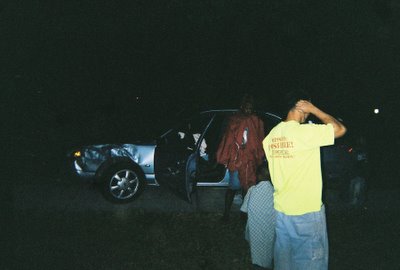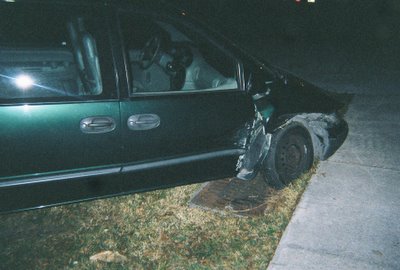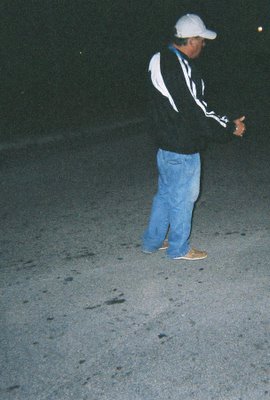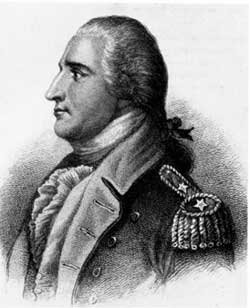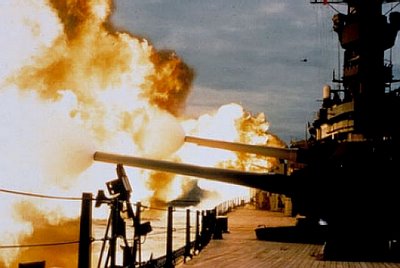
Three cheers for tiny Denmark in its stand for freedom of speech!
This action sends a very effective message to the Islamists and their Politically Correct allies in the West from the defenders of Western Civilization that the days of appeasement of Islam are numbered.
I say let a thousand newspapers in America run these cartoons.
Protests Over Muhammad Cartoon Grow
By DONNA ABU-NASR,
Associated Press Writer
Mon Jan 30, 1:26 PM ET
The controversy over Danish caricatures of Prophet Muhammad escalated Monday as gunmen seized an EU office in Gaza and Muslims appealed for a trade boycott of Danish products. Denmark called for its citizens in the Middle East to exercise vigilance.
Denmark-based Arla Foods, which has been the target of a widespread boycott in the Middle East, reported that two of its employees in Saudi Arabia were beaten by angry customers. Aid groups, meanwhile, pulled workers out of Gaza, citing the threat of hostilities.
The 12 drawings — published in a Danish paper in September and in a Norwegian paper this month — included an image of the prophet wearing a turban shaped as a bomb with a burning fuse. Islamic tradition bars any depiction of the prophet, even respectful ones, out of concern that such images could lead to idolatry.
Danish government officials have expressed regret over the furor but have refused to get involved, citing freedom of expression. The Jyllands-Posten newspaper has refused to apologize for publishing the drawings and has said it did not mean to insult Islam.
Prime Minister Anders Fogh Rasmussen briefed European Union colleagues about the matter Monday. He has repeatedly rejected calls to intervene.
But Arla Food's executive director urged the Danish government to take action.
"Freedom of expression is an internal Danish issue but this has a totally different dimension," Peder Tuborgh said. "This is about Denmark having offended millions of Muslims."
Villy Soevndal, leader of the small opposition Socialist People's Party, said Denmark "cannot be a country where the prime minister goes into hiding while Denmark loses export money, Danish citizens are being threatened and Danish flags burned."
Villy Soevndal, leader of the small opposition Socialist People's Party, said Denmark "cannot be a country where the prime minister goes into hiding while Denmark loses export money, Danish citizens are being threatened and Danish flags burned."
In Gaza, masked gunmen briefly took over an office used by the EU, demanding an apology from Denmark and Norway. The gunmen said citizens of the two countries would be prevented from entering the Gaza Strip. No one was hurt.
The Danish Red Cross said it was evacuating two employees from Gaza and one from Yemen.
"There have been concrete threats against our employees. The fact that they are Danish nationals has made the difference," Danish Red Cross spokesman Anders Ladekarl said.
"There have been concrete threats against our employees. The fact that they are Danish nationals has made the difference," Danish Red Cross spokesman Anders Ladekarl said.
The Norwegian People's Aid group also said it was withdrawing its two Norwegian representatives in Gaza but that operations would be maintained by local staff.
In a statement issued Sunday evening on its Web site, the Foreign Ministry called for Danes in the Middle East to be cautious.
In Iraq, a roadside bomb targeted a joint Danish-Iraqi patrol near the southern city of Basra on Monday, wounding one Iraqi policeman, military officials said. The attack was the first involving Danish troops since the protests flared.
Danish forces said the roadside bomb was targeting the Iraqi police rather than the Danes, though British Maj. Peter Cripps said coalition forces were investigating if there was any link between the attack and the drawings.
Arabs and Muslims also are calling for a boycott of Danish foods, including popular cream cheese, butter and cookie brands. Arla said the boycott of its products in the Middle East was almost total.
Arabs and Muslims also are calling for a boycott of Danish foods, including popular cream cheese, butter and cookie brands. Arla said the boycott of its products in the Middle East was almost total.
"Sales have come to a standstill in almost all markets," said Jens Refslund, the foods production division manager.
Arla Foods has $430 million in annual sales in the Middle East and about 1,000 employees in the region.
Saudi Arabia, which has recalled its ambassador to Denmark, was warned by the EU trade commissioner that the 25-nation bloc would take action with the World Trade Organization if the kingdom supported a Danish boycott, the European Commission said Monday.
Libya on Sunday said it was closing its embassy in Denmark.
Libya on Sunday said it was closing its embassy in Denmark.
Emirates' Minister of Justice and Islamic Affairs Mohammed Al Dhaheri said publishing the "blasphemous" cartoons was "disgusting and irresponsible," according to comments released Monday by the official WAM news agency.
"This is cultural terrorism, not freedom of expression. The repercussions of such irresponsible acts will have adverse impact on international relations."
The Egyptian parliament's Economic Committee refused to discuss a $72.5 million loan from Denmark to Egypt, with newspapers quoting lawmakers as saying they do not want to cooperate with a country that has insulted the prophet.
In Pakistan, Foreign Ministry spokeswoman Tasnim Aslam said the government is "engaged with the Danish government" over the cartoon publication.
She said Pakistan hopes the Danish government would "try to resolve this issue because you cannot hurt the sentiments of billions of Muslims in the name of freedom of press."











